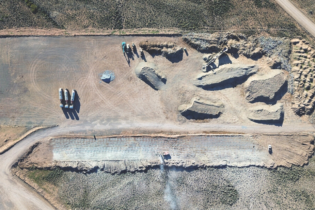
Decreasing the demand for power should be a major theme in South Africa’s total energy narrative, says GBCSA Chief Executive Officer, Brian Wilkinson
In the run up to the national budget speech where one of the focus areas is likely to be on energy supply projects, GBCSA Chief Executive Officer, Brian Wilkinson, observes: “Decreasing the demand for power should be a major theme in South Africa’s total energy narrative.”
Wilkinson says: “We acknowledge it is terribly important to have an energy supply-side debate around electricity generation, however, demand-side management that emphasises reducing consumption is an opportunity that is being completely under emphasised.”
He adds: “The more electricity we save, the more we ease supply constraints.”
The role of green building technology
In its simplest form, demand management starts with saving energy at home by switching off lights, turning down geysers, turning off pool pumps and using renewable energy resources. However, it extends well beyond this to using green building technology.
Green building is already playing a major role in reducing electricity demand. The average green building is proven to save 30% of energy consumption.
“This illustrates the substantial impact demand management plays in the total energy debate,” notes Wilkinson.
South Africa’s green building movement is making significant headway in reducing the demand for energy. The country now has 167 Green Star SA certified projects.
Research recently announced by the World Green Building Council (World GBC) reveals South Africa is the country with the highest proportion of green building projects currently being undertaken.
At this pace, South Africa is set to be the world leader in green building in the next three years.
New horizons
Besides gaining momentum in commercial property, green building is also expanding into new arenas.
GBCSA recently announced it will play a bigger part in creating greener homes using the EDGE (Excellence in Design for Greater Efficiencies) residential green building certification scheme.
Less than 18 months since the GBCSA launched the tool, it expects around 5 000 homes to be registered for certification.
At the COP21 Climate Change Summit in Paris late last year, the GBCSA made an ambitious commitment to drive residential green building certifications, targeting 10 000 residential certifications by 2020.
In addition, the council aims to introduce a Net Zero/Positive building certification scheme by 2020. The Net Zero/Positive building certification will cover energy and carbon emissions, and possibly also water and waste.
The association is also working with the South African Local Government Association (SALGA) to train officials at municipalities across the country.
“In this way, the green building conversation can be raised at an early stage of land use and building approval,” says Wilkinson.






